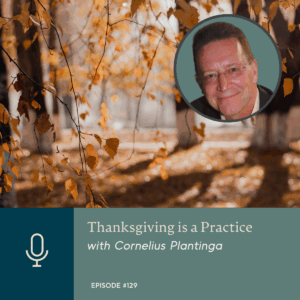In his column earlier this week, David Brooks, citing a variety of studies, wrote that “people’s essential worth is being measured by a political label: whether they should be hired, married, trusted or discriminated against.”
According to Brooks, as personal life is being de-moralized, political life is being “hyper-moralized” (meaning people are judgmental about policy labels); more people are building their communal and social identities around political labels; and politics is becoming a marker for basic decency. “Those who are not members of the right party are deemed to lack basic compassion, or basic loyalty to country,” he writes. Political issues have become symbols of worth and dignity.
There are of course cases when politics does reveal a corrupted character (e.g., a person who is a member of a neo-Nazi movement). But as a general matter, the points Brooks is making are quite right and, given the state of our politics, quite important. To state the obvious: We all know there are people who hold very different political views than we do who are admirable and honorable individuals, just as there are people who share our philosophy and are disreputable. In the vast majority of cases, one’s political affiliation says nothing about one’s personal character.
Beyond that, politics should have a rather limited role in our lives. To be sure, politics is important; it can create (or destroy) the conditions that allow for human flourishing. Yet for most people, most of life is–and the most important things in life are–lived outside of the arena of politics. And we shouldn’t overinflate its significance or exaggerate what it tells us about each other. Should I think less of the character of the coach of my son’s soccer team, or my daughter’s piano teacher, or the couple in my Bible Study, or the person who volunteers at a homeless shelter because of their views on climate change or the Affordable Care Act? On whether or not they want to raise or lower corporate tax rates? On whether they think illegal immigrants should be given a path to citizenship?
The answer for some people is yes. Jonathan Chait of New York magazine argues that those who hold political views contrary to his “live in a different moral universe” than he does and he therefore believes “their political views reflect something unflattering about their character.” This attitude shapes how he and others like him approach political debate. Why should we treat those on the wrong side of, say, the minimum wage with anything except disdain and contempt? People who hold this view of politics eventually feel justified in declaring their hatred for those with whom they disagree.
It’s important to acknowledge that many of us wrestle with a less acrimonious version of this. I’ve experienced situations over the years in which political differences have caused tensions even with friends that have required repair work and resetting things. The more deeply you feel about a subject the more inclined you are to view those disagreements as rooted in differing views of justice and morality. That’s understandable. If you have strong pro-life convictions and you encounter someone who celebrates abortion as a social and moral good, it’s likely that you’ll draw conclusions about that person that reflect, at least initially and at least in part, on their character. But in terms of what we should aspire to–between trying to check the (natural) impulse to view our political opponents as enemies v. encouraging it–it’s worth considering the example of Lincoln, who governed a nation far more divided than we are today.
“This most unrelenting enemy to the project of the Confederacy was the one man who had quite purged his heart and mind from hatred or even anger towards his fellow-countrymen of the South,” Lord Charnwood wrote in his marvelous biography of Lincoln. “It was not men but slavery he hated,” is how the essayist Joseph Epstein put it. “Malice wasn’t available to Lincoln; mercy came naturally to him. His magnanimity in forgiveness was another sign of his superiority.”
One final thought. Brooks writes, “Most of the time, politics is a battle between competing interests or an attempt to balance partial truths. But in this fervent state, it turns into a Manichaean struggle of light and darkness. To compromise is to betray your very identity.”
This is among the harder things for us to come to grips with, which is that at best we see partial truths; that while we believe truth exists, our ability to fully perceive truth is limited. People who accept this tend to be relatively less dogmatic and abrasive, relatively more empirical, the ones most open to other points of view and corrections. “We need to make room for other perspectives,” a wise friend recently told me. “We need to make room for others at the table.”
That doesn’t mean that the perspectives of others are always right or even valuable. Not everyone’s opinion is worth hearing. And some personalities fit better at the table than do others. The point from the conversation, at least as I took it, is that one way to avoid “epistemic closure” is by considering, at least now and then, different angles of vision, different ways of seeing things. It means from time to time assuming the person you’re politically at odds with is a decent person and then trying to understand why he holds the views he does, even if you reject them. It requires taking into account the strongest (not the weakest) arguments against our assumptions and the self-confidence to change if needed. The goal, after all, isn’t to win a debate; it’s to more closely align our views to the truth of things.
— Peter Wehner is a Senior Fellow at the Ethics and Public Policy Center

